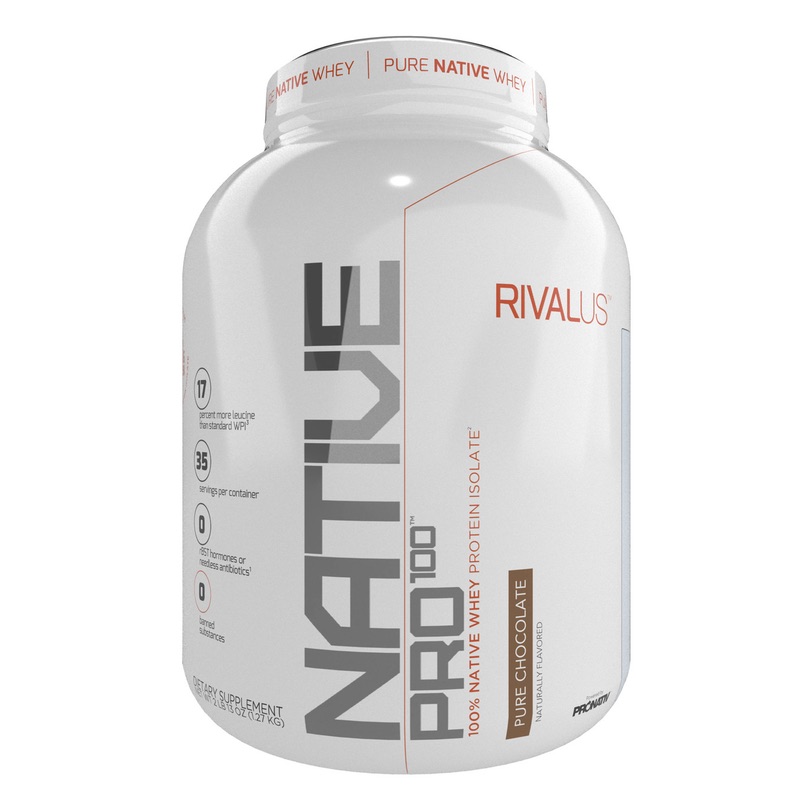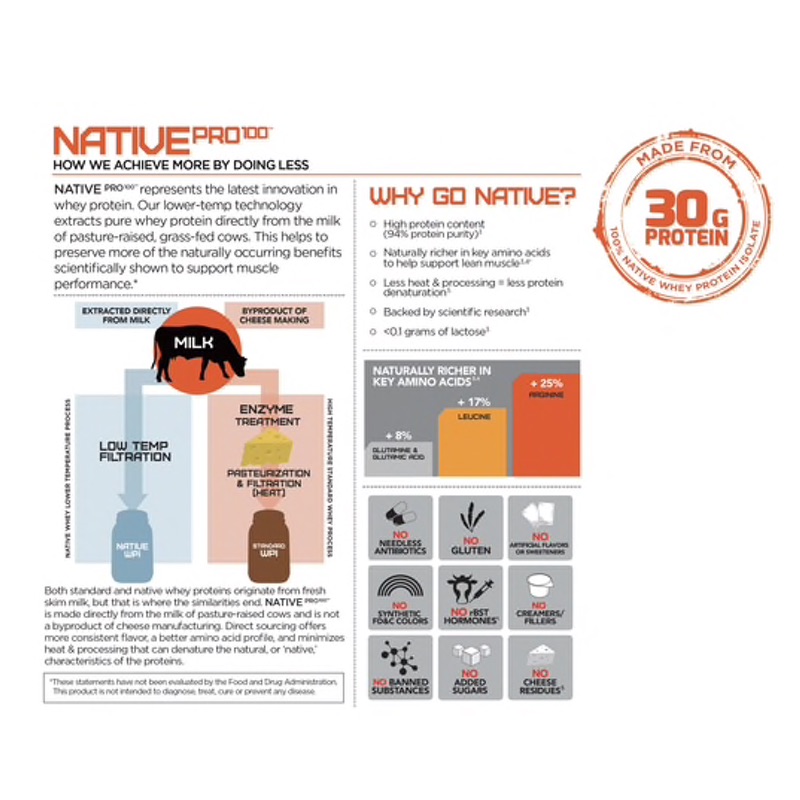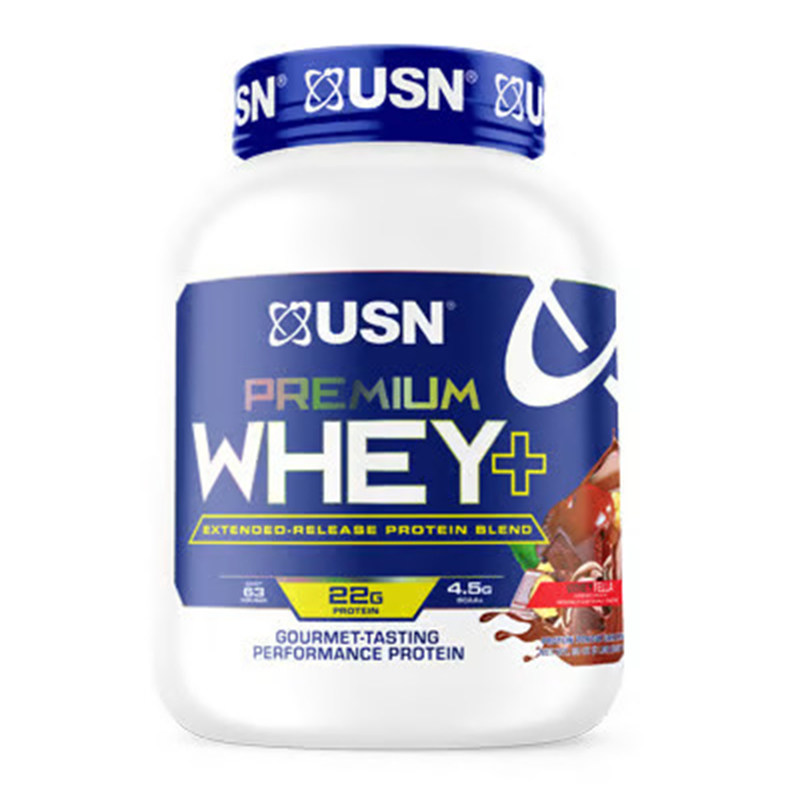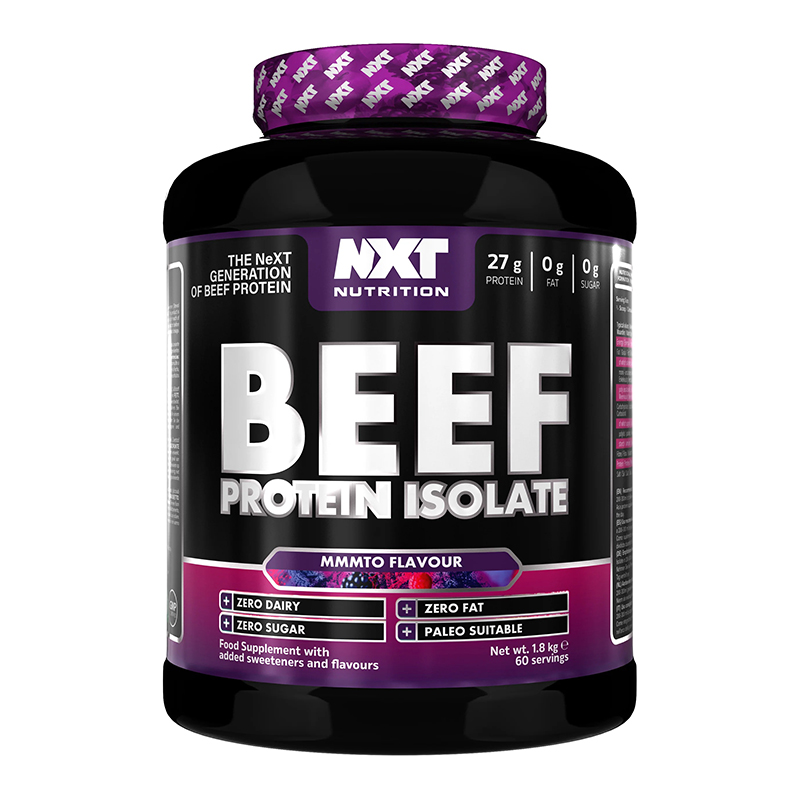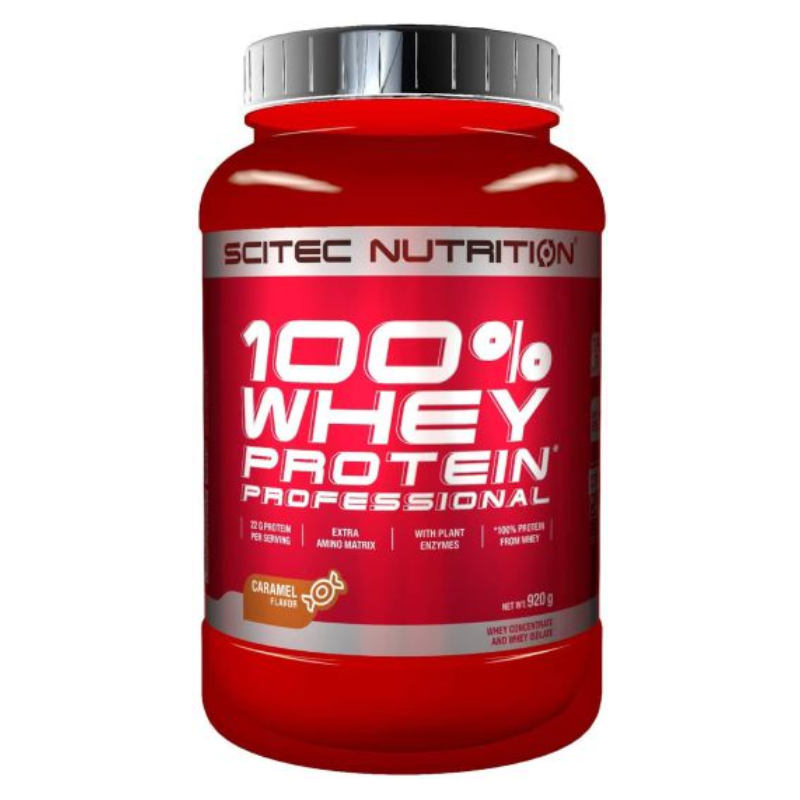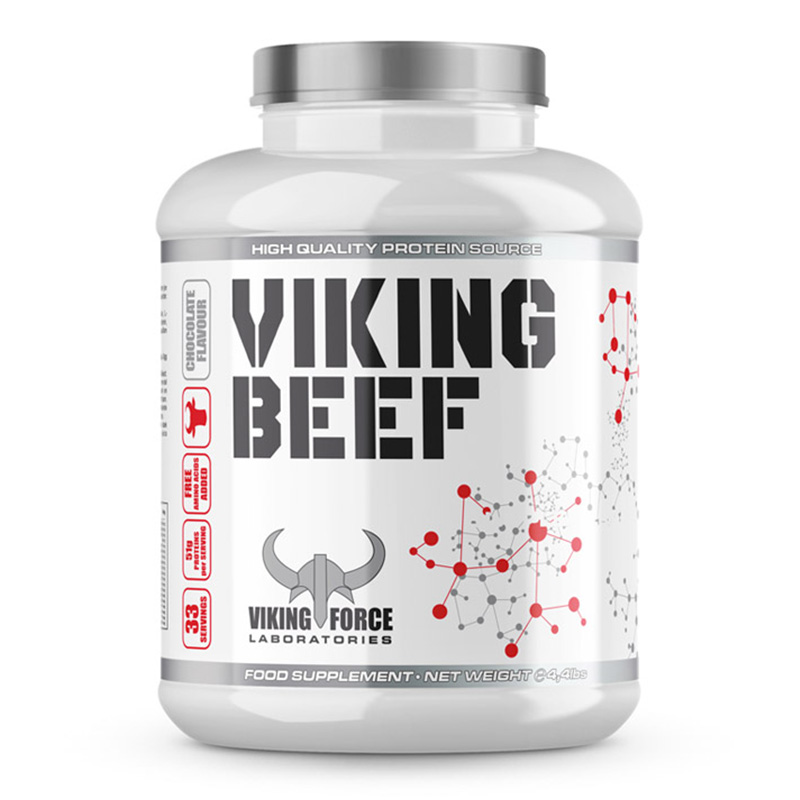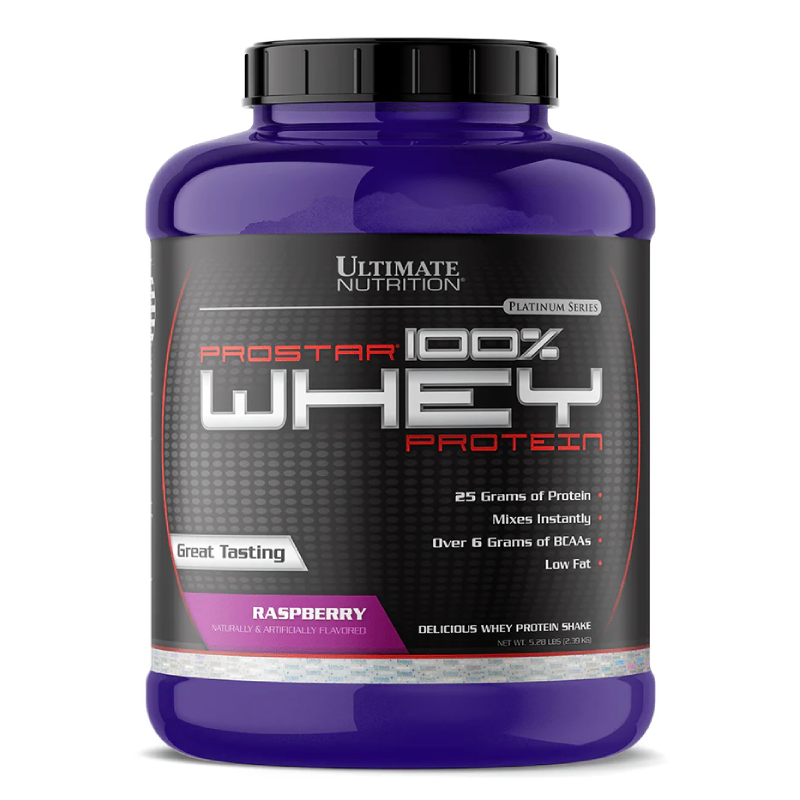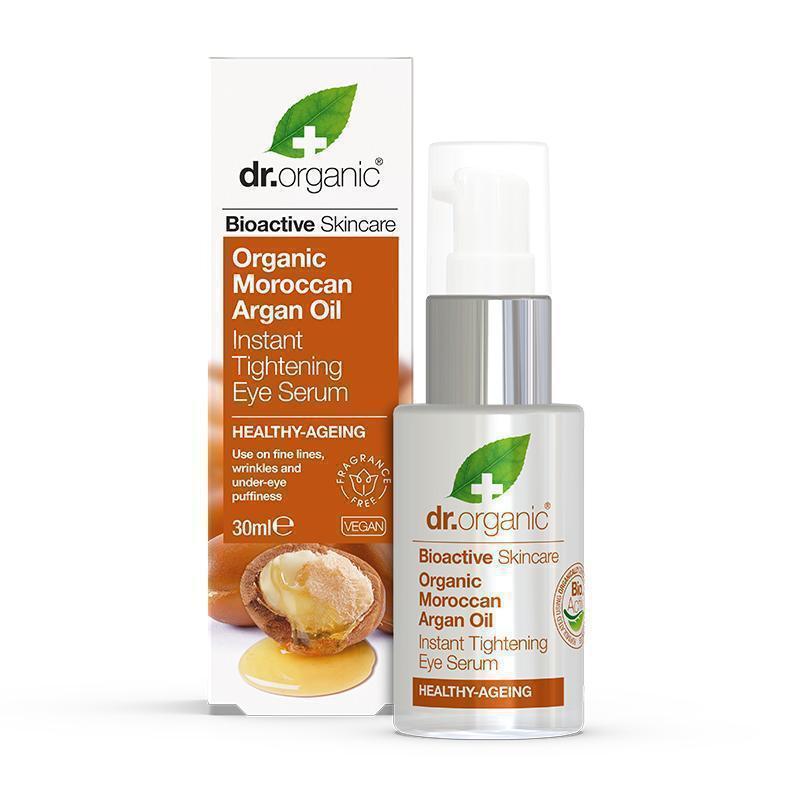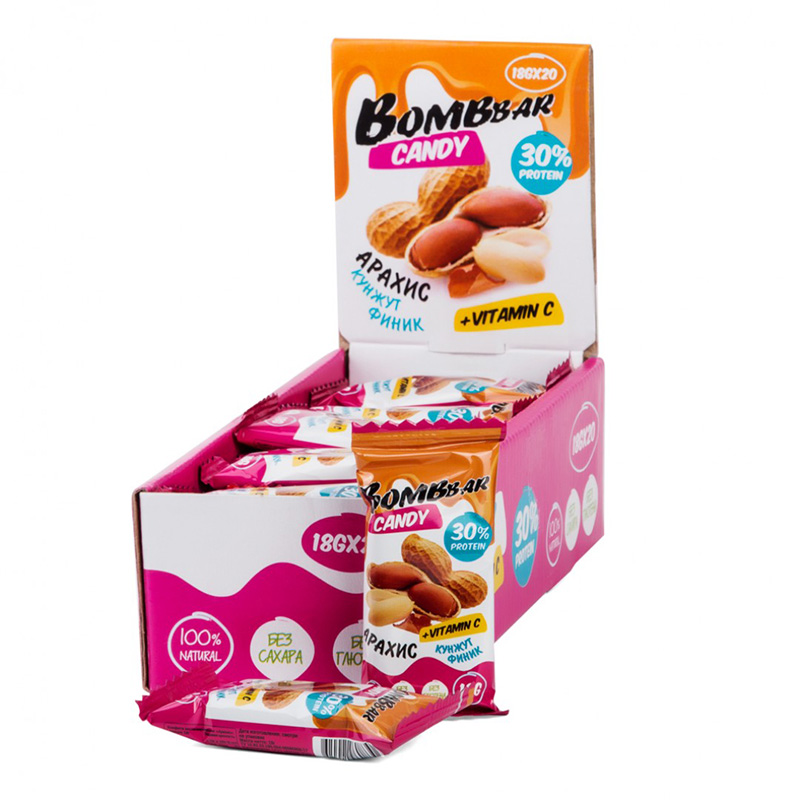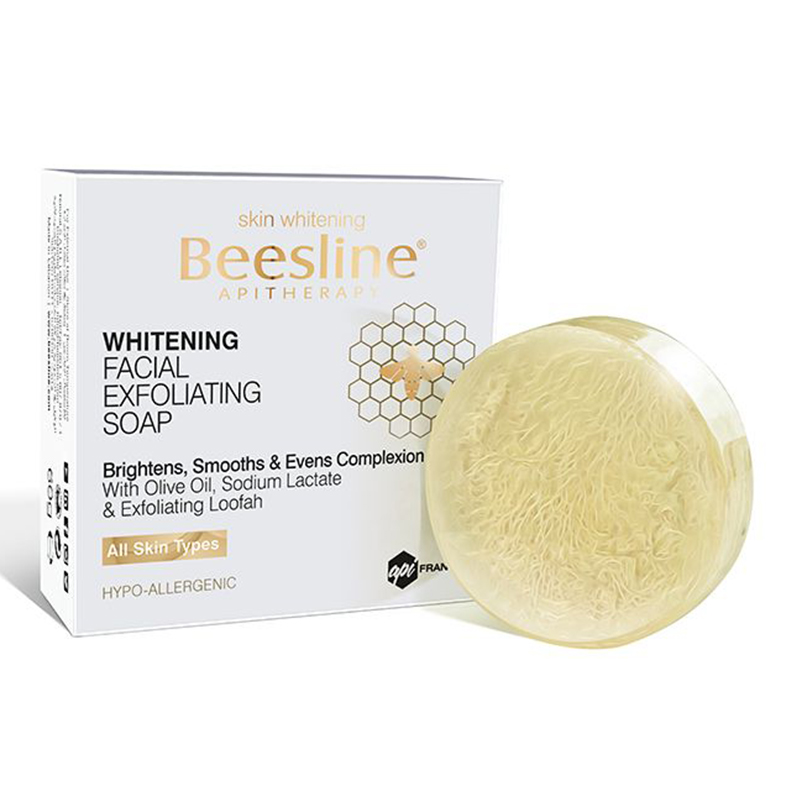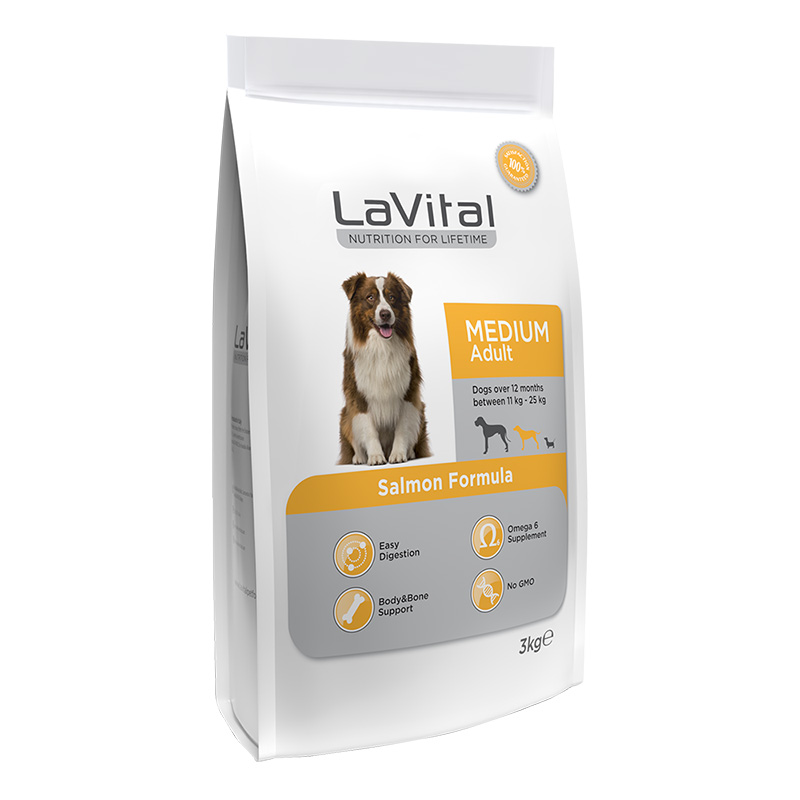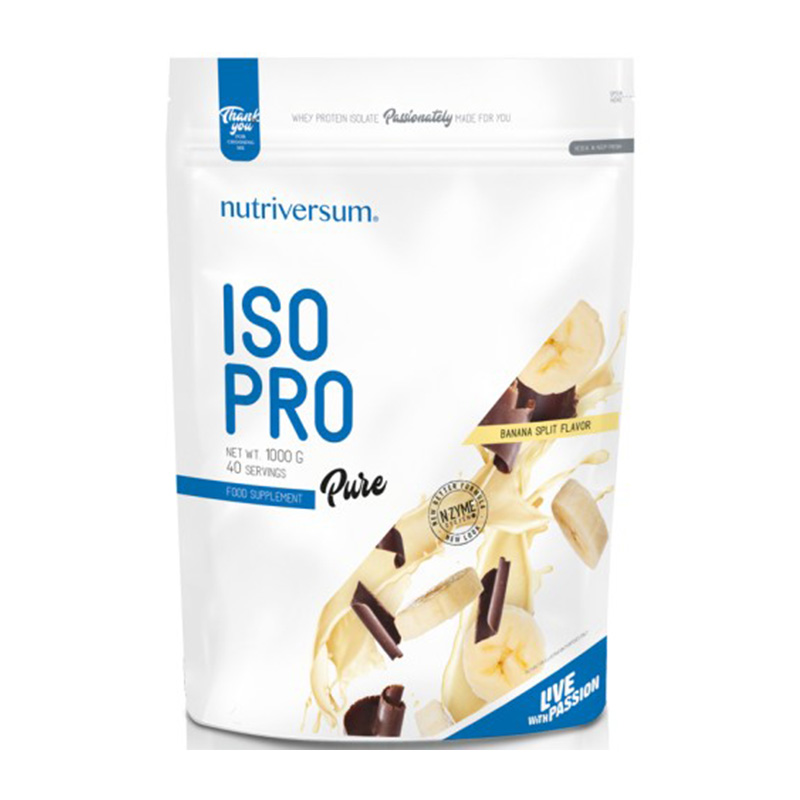RivalUS Native Pro 100 2.8 lbs 100% Native Whey Protein Isolate
RIV400838823No Products
TotalAED 0
NATIVE PRO 100™ - 100% NATIVE WHEY PROTEIN ISOLATE
INSIGHTS
Traditionally whey has been a byproduct of cheese manufacturing. Though cheese whey is still the industry standard, a new technology, allowing gentler extraction of delicate whey proteins directly from milk, is emerging. This next generation of whey protein is more expensive than traditional sources, but has qualities that make it highly attractive for athletes. Some examples include lower denaturation (natural or ‘native’ structures of the proteins better preserved), higher levels of key aminos to support muscle performance, and clinically backed effectiveness.*
NATIVE PRO 100 represents the latest innovation in whey protein. Lower-temp technology directly extracts pure whey protein from the milk of pasture-raised, grass-fed cows to preserve more of the naturally occurring benefits that have been scientifically shown to support muscle performance. Those seeking the best whey protein available need look no further.*
*These statements have not been evaluated by the Food and Drug Administration. This product is not intended to prevent, treat, cure or prevent any disease.
AT A GLANCE
- 30 g fast-acting protein.
- Made with 100% NATIVE whey isolate.
- Extracted directly from pasture-raised, grass-fed cow's milk.
- 17% more leucine, 8% more glutamine, 25% more arginine.
- 0 g lactose, gluten, or fat.
- No rBST hormones, antibiotics, creamers, synthetic colors.
- Naturally flavored. Sweetened with stevia and monk fruit.
- No banned substances - safe for sport.
USAGE : After workouts, mornings, or afternoons.
Per serving. Amino acids are naturally occurring and values are approximated. Information varies by flavor. Refer to nutritional, ingredient, and allergen information for complete details. Native whey is not a byproduct of cheese manufacturing or subjected to secondary pasteurization. Compared to standard whey protein isolate. No significant difference has been shown between the milk of rBST treated and untreated cows.
You May Also Like

